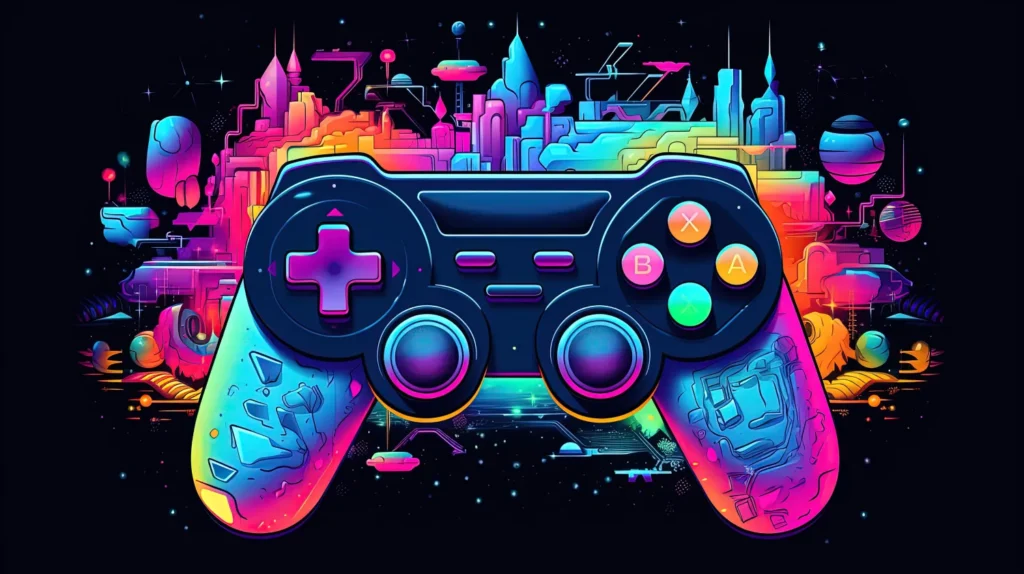Our documentation

The nature of sensitive data in video games
Video games, particularly massively multiplayer online (MMO) and cloud-based titles, have revolutionized the gaming experience by offering vast, interactive virtual worlds where players can interact in real time with thousands, if not millions, of other players across the globe. However, this increased interconnectivity comes at a cost when it comes to protecting players’ personal data.
Game developers collect a wealth of information about users to enhance the gaming experience, personalize features and provide online services. This information includes login details, email addresses, bank details for integrated purchases, detailed game histories, game preferences, and sometimes even biometric data for games using facial or motion recognition devices. This wealth of information is a goldmine for developers, enabling them to better understand players’ habits and adapt their games accordingly.
However, this same abundance of data also creates an attractive target for cybercriminals. Online gaming databases can become treasure troves of personal and financial information, attracting hackers looking for data to exploit for malicious purposes. Attacks targeting gaming accounts have become commonplace, with hackers looking to steal login credentials, steal payment information or resell hacked accounts on the black market. In addition, online games are often the target of malware, such as cheatware and viruses, which can compromise the security of players and the data stored on their devices.
The risks and consequences of data leaks
Data leaks in the video game industry can have serious and far-reaching consequences, both for individual gamers and for companies operating online games. Users, whose personal information is compromised, are exposed to a wide range of risks, from identity theft to financial fraud to online harassment.
First and foremost, identity theft is one of the most worrying consequences of data leaks. When information such as login credentials, email addresses and banking details are exposed, cybercriminals can exploit them to impersonate users, open fake accounts in their name, or carry out fraudulent transactions at their expense. Victims can be left with empty bank accounts, maxed-out credit cards, or even an online reputation tarnished by criminal activities committed in their name.
In addition, players whose personal information has been compromised are vulnerable to online harassment and exploitation. Hackers can use players’ sensitive information to target them with phishing attacks, account compromise scams or even physical threats in some cases. Victims may be subjected to psychological pressure, blackmail or risks to their personal safety.
In addition to the consequences for individual players, data leaks can also have significant repercussions for companies operating online games. In addition to the potential damage to their reputations and users’ trust, companies risk incurring significant regulatory fines for breaches of data protection laws. What’s more, potential litigation arising from privacy breaches can result in considerable legal costs and significant financial losses for the companies involved. Ultimately, data leaks represent a serious threat to the financial security and commercial viability of online gaming companies.


Security and data protection measures
Faced with these growing risks, game developers and platforms are implementing enhanced security measures to protect players’ sensitive data and prevent data leakage. These measures are designed to strengthen the security of IT systems and gaming infrastructures, while raising user awareness of good online security practices.
One of the most common strategies adopted by game developers is the adoption of two-factor authentication (2FA). This additional security method requires not only a password, but also another form of identification, such as a code sent by SMS or generated by an application, to access an account. This makes it much more difficult for hackers to compromise players’ accounts, even if they have managed to obtain login details.
In addition, data encryption is widely used to protect sensitive information stored in online gaming databases. Encryption transforms data into an unreadable and indecipherable format without the appropriate decryption key, making it extremely difficult for cybercriminals to access users’ personal information even if they manage to penetrate security defenses.
At the same time, gaming platforms are also focusing on raising user awareness of online security. They provide educational resources and practical advice to players on how to protect their accounts and personal information from online threats. Awareness campaigns are often run to inform players about potential risks and best security practices.
Finally, data protection regulations, such as the General Data Protection Regulation (GDPR) in Europe, play a crucial role in promoting data security in the video game industry. These regulations require companies to adhere to strict standards when collecting, storing and processing users’ personal data, or face severe financial penalties for non-compliance. By adopting more transparent privacy policies and strengthening their data protection practices, video game companies can comply with regulatory requirements, while reinforcing user confidence in the security of their products and services.
Ongoing challenges and future prospects
Despite advances in data security, data leakage continues to represent a persistent and evolving challenge for the video game industry. Cybercriminals are constantly looking for new ways to bypass security measures and exploit vulnerabilities in computer systems, making it more difficult than ever to protect user data. What’s more, the growing sophistication of attacks, such as targeted phishing attacks and advanced malware, makes detecting and preventing data breaches even more complex.
In the face of this persistent threat, it is essential that the video game industry remains alert and continues to invest in IT security. This requires ongoing vigilance on the part of game developers, game platforms and online service providers to identify and respond to new threats as they arise. Security teams need to keep abreast of the latest trends in cybercrime, and work closely with IT security experts to develop effective data protection solutions.
In the future, gaming companies are likely to step up their efforts to protect user privacy and ensure secure gaming experiences for all. This could include integrating cutting-edge technologies such as artificial intelligence and machine learning to proactively detect and prevent threats, as well as partnering with regulators and security agencies to share threat intelligence and collaborate on anti-cybercrime initiatives. Ultimately, data security will remain a top priority for the video game industry, to protect user trust and ensure safe and secure online gaming experiences for all players.

